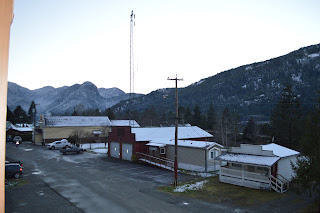Gold mining built the town of
Zeballos in the 1930s, when gold was discovered in the hills surrounding the
small port at the head of the Zeballos Inlet. The inlet was named after a Spanish
lieutenant, Ciriaco Cevallos, in 1972.
At the height of the gold production, Zeballos was a thriving town of over 1500 people. However, the second world war and then a lower price of gold meant an end to the gold mines and the Village slowly reduced in size. Forestry is now the mainstay of the local economy, and approx. 100 people make Zeballos home year-round.
With its road access and the open
waters of the Pacific Ocean and the waterways of Nootka Sound beckoning, Zeballos
has become a choice destination for fishing and wilderness recreation. There is
both fresh water and salt water fishing, as the Zeballos River runs through
town.
Zeballos is on the west coast of
Vancouver Island, accessed by road from Hwy 19 just north of Woss. This is a
Forest Service gravel road and can be in varying condition throughout the year.
The small coastal hamlet is located
approximately 14 nautical miles from the open west coast Pacific Ocean and is
17 nautical miles from Tahsis, a small coastal community in the neighbouring
inlet to the south.
There are limited services,
including a medical clinic, general store, marina and boat fuel sales. In the
summer there are a number of accommodation options. Zeballos calls itself the
Golden Gate to the West Coast. It offers access to Nootka Sound and the fishing
on the west coast of the island, as well as the provincial parks of the
northern Island (Woss, Brooks Peninsula, Cape Scott).
It's a Coastal Lifestyle ... Live It!




















